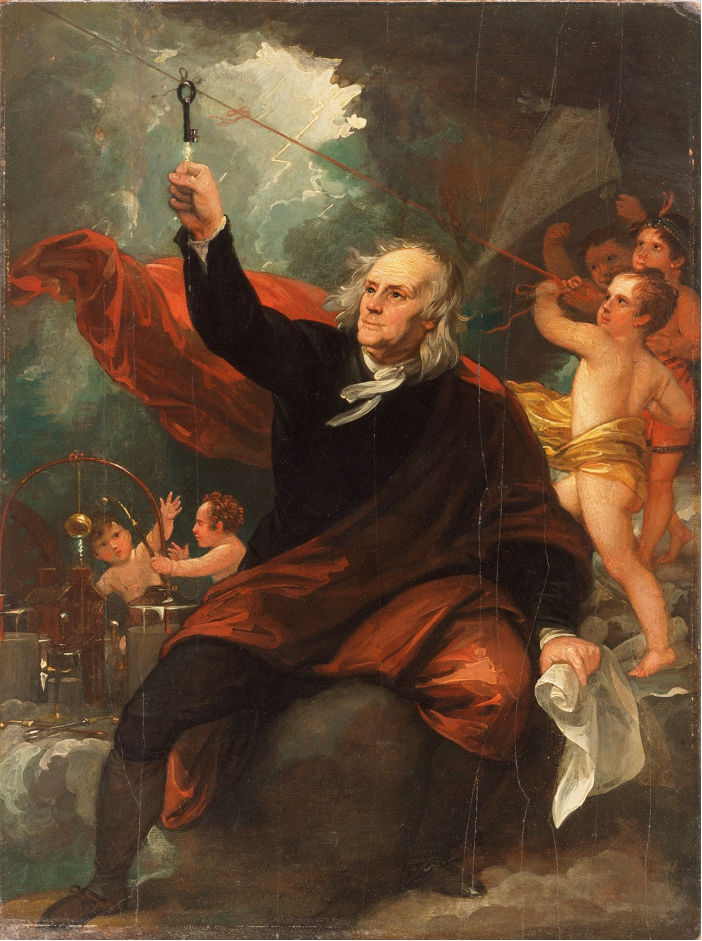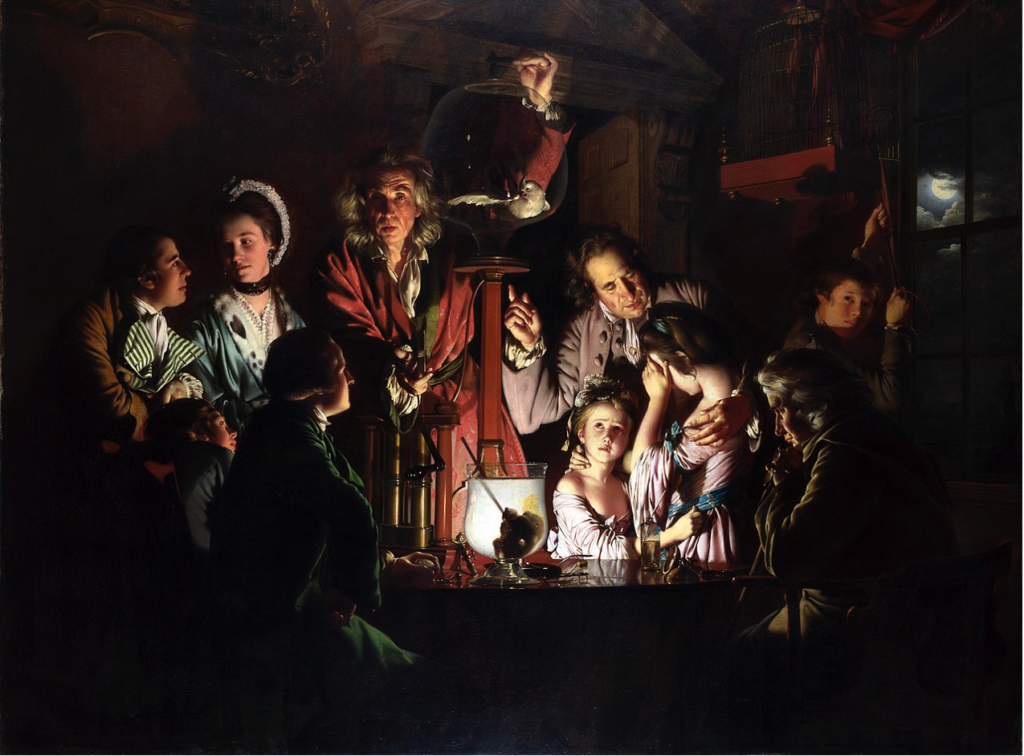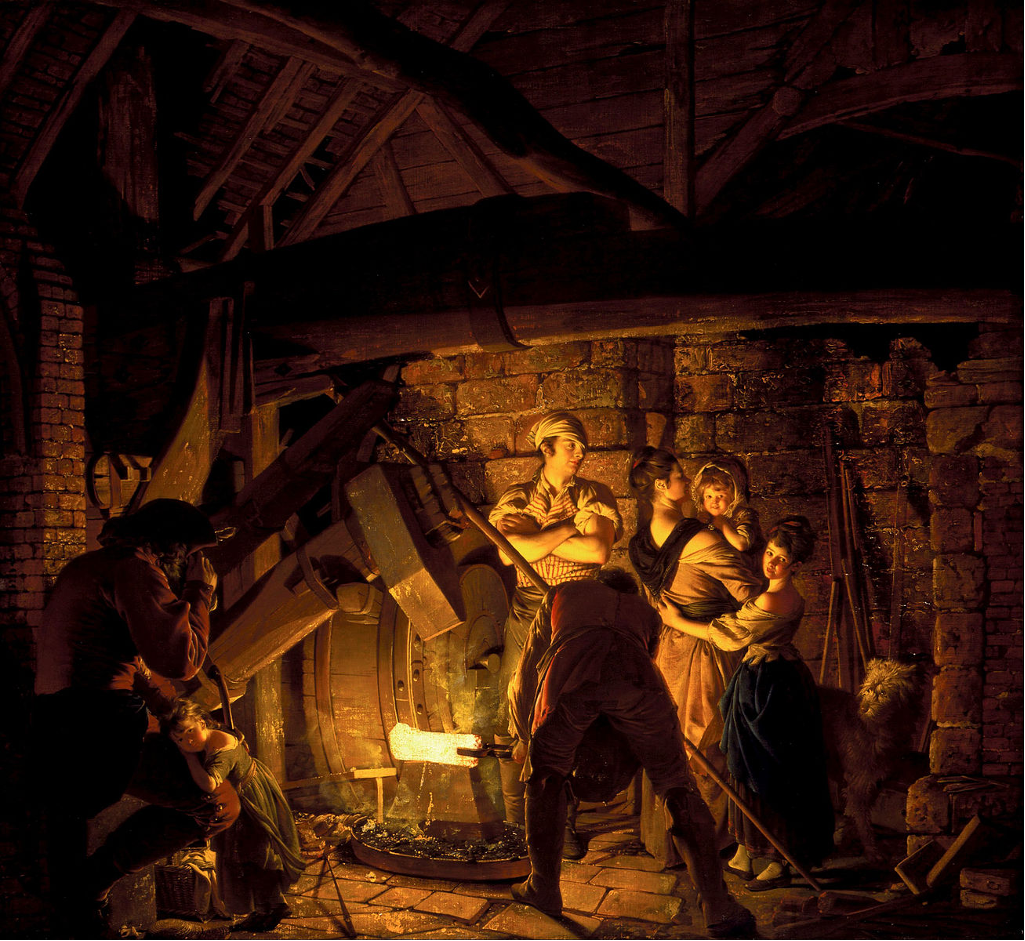Prometheus
(Poet's title: Prometheus)
Set by Schubert:
D 674
[October 1819]
Bedecke deinen Himmel, Zevs,
Mit Wolkendunst,
Und übe, dem Knaben gleich,
Der Disteln köpft,
Mit Eichen dich und Bergeshöhn.
Musst mir meine Erde
Doch lassen stehn,
Und meine Hütte, die du nicht gebaut,
Und meinen Herd,
Um dessen Glut
Du mich beneidest.
Ich kenne nichts Ärmeres
Unter der Sonn’, als Euch, Götter!
Ihr nährt kümmerlich
Von Opfersteuern,
Vom Gebetshauch
Eure Majestät,
Ihr darbtet, wären
Nicht Kinder und Bettler
Hoffnungsvolle Toren.
Da ich ein Kind war,
Nicht wusste, wo aus noch ein,
Kehrt’ ich mein verirrtes Auge
Zur Sonne, als wenn drüber wär
Ein Ohr, zu hören meine Klage,
Ein Herz, wie meins,
Sich des Bedrängten zu erbarmen.
Wer half mir
Wider der Titanen Übermut?
Wer rettete vom Tode mich,
Von Sklaverei?
Hast du nicht Alles selbst vollendet,
Heilig glühend Herz,
Und glühtest jung und gut,
Betrogen, Rettungsdank
Dem Schlafenden da droben?
Ich dich ehren, wofür?
Hast du die Schmerzen gelindert
Je des Beladenen?
Hast du die Tränen gestillet
Je des Geängsteten?
Hat nicht mich zum Manne geschmiedet
Die allmächtige Zeit
Und das ewige Schicksal,
Meine Herrn und deine?
Wähntest du etwa,
Ich sollte das Leben hassen,
In Wüsten fliehen,
Weil nicht alle
Blütenträume reiften?
Hier sitz’ ich, forme Menschen
Nach meinem Bilde,
Ein Geschlecht, das mir gleich sei,
Zu leiden, zu weinen,
Zu genießen und zu freuen sich,
Und dein nicht zu achten,
Wie ich.
Zeus, cover your sky
With a cloudy layer of mist,
And practise, like a boy
Beheading thistles,
With oak trees and mountain peaks;
But you will have to leave me my earth,
Leave it standing,
And my shelter, which you did not build,
And my hearth
Whose embers
You begrudge me.
I know nothing more miserable
Under the sun than you, you gods!
You receive meagre nourishment
From sacrificial offerings
From the breath of prayers,
Feeding your majesty,
You would starve if
Children and beggars were not
Hopeless fools.
When I was a child,
I did not know what was what,
I turned my deluded eyes
Towards the sun, as if beyond it there were
An ear that would listen to my complaint,
A heart, like mine,
That would offer comfort to those in torment.
Who helped me
Against the pride of the Titans?
Who saved me from death,
From slavery?
Did you not achieve it all yourself,
Sacred, glowing heart?
And glowing with youth and goodness
Were you not deceived when you offered thanks for your salvation
To that sleeper up there?
Should I honour YOU? For what?
Have you soothed the pains
Of those who carry burdens at any point?
Have you dried the tears
Of those who are anxious at any point?
Was I not forged as a man
By almighty Time [Chronos]
And eternal Fate,
My lords and yours?
Did you perhaps believe
That I would hate life,
That I would flee into the wilderness
Because not all
Of my dreams of blossoming came to fruition?
I sit here, I shape men
In my own image,
A race that is similar to me,
To suffer, to weep,
To take pleasure and enjoy themselves,
And to pay no attention to you,
Like me!
All translations into English that appear on this website, unless otherwise stated, are by Malcolm Wren. You are free to use them on condition that you acknowledge Malcolm Wren as the translator and schubertsong.uk as the source. Unless otherwise stated, the comments and essays that appear after the texts and translations are by Malcolm Wren and are © Copyright.
☙
Themes and images in this text:
The ancient world Begging and pleading Children and childhood Chronos Covers and covering Deserts Detours and delusions Dreams Ears The earth Eternity Eyes Fate, luck and lotteries Fire Fleeing Food, feeding and nursing Hearts Hearths and fireplaces Heaven, the sky High, low and deep Hills and mountains Hope Huts Jupiter / Zeus Laments, elegies and mourning Mist and fog Not moving Oak trees Pain Pictures and paintings Prayers and praying Prometheus Sacrifice Slaves and slavery Sleep Smiths and metalwork The sun Tears and crying Thistles Time
PROMETHEUS (Προμηθεύς, ‘the forethinker' . . .)
an ancient and popular demigod, one of the Titans. . .
Originally, his character is entirely non-moral; he is the supreme trickster . . . and as such is on occasion opposed to Zeus, whom he outwits. It would appear that he developed in common belief into a supreme craftsman, and was worshipped as such by craftsmen, particularly in Attica. . . Probably it is in this connexion that he is associated with fire and with the creation of man. Hesiod has two principal tales of him. The first is that when Zeus hid fire away from man, Prometheus stole it and brought it to earth again (Theog. 562ff). . . The other tale is the vengeance of Zeus on Prometheus. He chained him and sent an eagle to eat his liver, which was as immortal as the rest of him and grew at night as fast as the eagle could devour it by day. In this torment he remained until Heracles released him. . .
N. G. L. Hammond and H. H. Scullard ed., The Oxford Classical Dictionary Oxford: Clarendon Press 1970 pp. 883-884
The popularity of Prometheus in pre-classical Greece (the time of Hesiod, c.700 BCE, the first known recorder of stories about him) makes total sense. This was a bronze age culture where control of fire allowed valuable objects to be forged in metal. Such creativity allowed people to defy stronger powers. Human beings were no longer at the mercy of arbitrary forces; it was even possible to mimic Zeus himself with his lightning.
The story’s appeal continued in classical times. There was a trilogy of plays (only the first of which has survived) long attributed to Aeschylus (c. 525 – c. 456 BCE) which presented Prometheus being bound by Hephaestus / Vulcan (the smith god) and then unbound by Heracles / Hercules. Prometheus’ creativity and technical skill is central to the argument in Plato’s dialogue Protagoras (early 4th century BCE). Plato here was exploring whether or not wisdom and political judgement involved the sort of skill or technical ability that could be taught, in the way that a master craftsman teaches an apprentice, and he seems to conclude that whatever it was that Prometheus presented to human beings it was not the ability to act justly.
Throughout the long centuries of Roman and Christian domination of Europe, Prometheus was not a central figure in its culture. However, this changed radically in the years between Goethe’s Prometheus (1773) and the death of Schubert (1828):
| 1773 | Goethe | Prometheus (dramatic monologue or ode, originally envisaged as part of a broader drama) |
| 1797 | A. W. von Schlegel | Prometheus (338 line poem in ballad form) |
| 1801 | Beethoven / Viganò | Die Geschöpfe des Prometheus (ballet) |
| 1803 | J. G. von Herder | Der entfesselte Prometheus (play) |
| 1817 | Mary Shelley | Frankenstein, or the Modern Prometheus (novel) |
| 1820 | Percy Bysshe Shelley | Prometheus Unbound (lyrical drama) |
| 1824 | Leopardi | La scomessa di Promoteo (Essay and dialogue) |
This sudden revitalisation of the myth was related to three converging movements that fundamentally changed attitudes to the scope of human striving:
1) the rise of science and challenges to traditional claims to religious and political authority (often referred to for shorthand purposes as ‘The Enlightenment’);
2) profound changes in economic activity based on new technologies and the harnessing of steam power (‘the Industrial Revolution’);
3) the French Revolution and its political and cultural repercussions, including reactions against it.
One of the great figures of the so-called Enlightenment was Benjamin Franklin, who in 1752 appeared to take on the mantle of Prometheus when he challenged the reign of Zeus / Jupiter as the sole guardian of lightning. His experiments and ideas explained much of the role of electricity in nature and paved the way for human control of this power. A generation later Goethe was to follow Franklin’s example by linking a passionate, critical interest in understanding nature (the physical sciences) with an equally devoted commitment to improving human society and culture through political activity and engagement with the arts. Both were active Freemasons, seeing this as another means of instilling virtue and human integrity alongside (or perhaps even an improvement on) conventional organised religion. Other famous contemporaries (notably David Hume and Voltaire) were even more Promethean in consistently challenging religious orthodoxy (see note on Goethe and Christianity below).

Philadelphia Museum of Art

London, National Gallery
It is impossible to separate the development of the Enlightenment approach to the world from the technical and practical changes that came to be called the Industrial Revolution. Benjamin Franklin himself was closely connected to the Lunar Society[1] in Birmingham, England, and along with some of its members he visited many of the important sites where the new technologies were being successfully applied (from Cromford Mill in Derbyshire to some of the mines where Boulton’s steam engines were beginning to transform society). So profound were the implications of these new techniques that people with a classical education were easily reminded of the myths of the Titans, and Prometheus specifically, who had suffered agonising punishment as a consequence of allowing human beings to have access to the forbidden forces of creation and production. The works of the English Romantic poets and their associates (Blake, Coleridge, Shelley etc) in the next generation battled with what it meant to be a human being in a world where such massive energy had been unleashed. To what extent were we in charge of all of this? To what extent were we Promethean ourselves? Or were we now at the mercy of nature in all of its ferocity? Were we, like Prometheus, now chained in punishment, fated to suffer endless agonies?

An Iron Forge 1772 Tate Britain
As Goethe was writing and revising his version of Prometheus in the winter of 1773/4, Benjamin Franklin found himself increasingly at odds with the British government over the question of taxation in the American colonies. He began to defend the protestors in Massachusetts who poured tea into Boston harbour rather than pay the arbitrary duty imposed on it. A fuse had been lit that would explode into the American and then the French Revolutions. King George III of England was portrayed in America as a despot whose authority was ripe for challenge, and the success of the movement towards independence then inspired the French opposition to the even more arbitrary power exercised by Louis XVI and the Catholic Church. Kings and their Ministers, Popes and their Bishops came to be seen as dictatorial Olympian gods with an inflated and unjustified sense of entitlement. They found themselves challenged by a new group of Titans (Franklin, Washington, Jefferson, Marat, Danton, Robespierre etc.) until a new Prometheus, Napoleon Bonaparte, appeared on the scene, only for the cycle to be repeated. By the time Napoleon declared himself Emperor and invaded most of continental Europe it was he who increasingly appeared to be playing the role of Zeus the oppressor. The voice of Goethe’s Prometheus, by the time Schubert set it to music in 1819, was the voice of the ordinary people (of Russia, Austria, the Italian Peninsula, Prussia, Spain etc.) who had risen up to overthrow him.
[1] Jenny Uglow, The Lunar Men. The Friends who made the Future 1730-1810 Faber and Faber 2002
Note on Goethe and Christianity
Goethe’s Prometheus is a literary construction, not a mouthpiece for his own views on religion. However, he would have expected his original readers to recognise (and perhaps be shocked by) the echoes of some famous passages from the Bible.
Da ich ein Kind war, Nicht wusste, wo aus noch ein, Kehrt' ich mein verirrtes Auge Zur Sonne, als wenn drüber wär Ein Ohr, zu hören meine Klage, Ein Herz, wie meins, Sich des Bedrängten zu erbarmen. When I was a child, I did not know what was what, I turned my deluded eyes Towards the sun, as if beyond it there were An ear that would listen to my complaint, A heart, like mine, That would offer comfort to those in torment.
This stanza appears to quote St. Paul (I Corinthians 13: 11): ‘When I was a child, I spake as a child, I understood as a child, I thought as a child: but when I became a man, I put away childish things’. Goethe seems to be inverting the message: For Prometheus it is trust in God that is childish.
The final stanza (Hier sitz’ ich, forme Menschen / Nach meinem Bilde // I sit here, I shape men / In my own image) includes a reference both to the creation story in Genesis (1: 27), ‘God created man in his own image, in the image of God created he him’, and to the words attributed to Martin Luther at the Diet of Worms in 1521 when he was asked to withdraw his criticism of the Pope and the Catholic Church, ‘Here I stand, I can do no other’. Goethe is hinting at the Promethean nature of Luther and thereby at the challenge to credulity inherent in the Lutheran tradition.
☙
Original Spelling and notes on the text Prometheus Bedecke deinen Himmel, Zevs, Mit Wolkendunst, Und übe, dem Knaben gleich, Der Disteln köpft, An1 Eichen dich und Bergeshöhn; Mußt mir meine Erde Doch lassen stehn, Und meine Hütte, die du nicht gebaut, Und meinen Herd, Um dessen Gluth Du mich beneidest. Ich kenne nichts Aermeres Unter der Sonn', als euch, Götter! Ihr nähret kümmerlich Von Opfersteuern Vom2 Gebetshauch Eure Majestät, Ihr3 darbtet, wären Nicht Kinder und Bettler Hoffnungsvolle Thoren. Da ich ein Kind war, Nicht wußte wo aus noch ein, Kehrt' ich mein verirrtes Auge Zur Sonne, als wenn drüber wär' Ein Ohr, zu hören meine Klage, Ein Herz, wie mein's, Sich des Bedrängten zu erbarmen. Wer half mir Wider der Titanen Uebermuth? Wer rettete vom Tode mich, Von Sklaverey? Hast du nicht Alles selbst vollendet, Heilig glühend Herz? Und glühtest jung und gut, Betrogen, Rettungsdank Dem Schlafenden da droben? Ich dich ehren? Wofür? Hast du die Schmerzen gelindert Je des Beladenen? Hast du die Thränen gestillet Je des Geängsteten? Hat nicht mich zum Manne geschmiedet Die allmächtige Zeit Und das ewige Schicksal, Meine Herrn und deine? Wähntest du etwa, Ich sollte das Leben hassen, In Wüsten fliehen, Weil nicht alle Blüthenträume reiften? Hier sitz' ich, forme Menschen Nach meinem Bilde, Ein Geschlecht, das mir gleich sey, Zu leiden, zu weinen, Zu genießen und zu freuen sich, Und dein nicht zu achten, Wie ich! 1 Schubert changed 'An' (On) to 'Mit' (With) 2 Schubert changed 'Vom' (From) to 'Und' (And) 3 Schubert changed 'Und darbtet' (And you would starve) to 'Ihr darbtet' (You would starve)
Confirmed by Peter Rastl with Schubert’s source, Goethe’s Werke. Zweyter Band. Original-Ausgabe. Wien, 1816. Bey Chr. Kaulfuß und C. Armbruster. Stuttgart. In der J. G. Cotta’schen Buchhandlung. Gedruckt bey Anton Strauß pages 89-91; with Goethe’s Werke. Vollständige Ausgabe letzter Hand. Zweyter Band. Stuttgart und Tübingen, in der J.G.Cotta’schen Buchhandlung. 1827, pages 79-81; and with Goethe’s Schriften, Achter Band, Leipzig, bey Georg Joachim Göschen, 1789, pages 207-209.
First published anonymously in Friedrich Heinrich Jacobi’s Ueber die Lehre des Spinoza in Briefen an den Herrn Moses Mendelssohn. Breslau, bey Gottl. Löwe. 1785, where Goethe’s poem is included on four unpaginated pages between p.48 and p.49.
To see an early edition of the text, go to page 89 [97 von 350] here: http://digital.onb.ac.at/OnbViewer/viewer.faces?doc=ABO_%2BZ223421905


